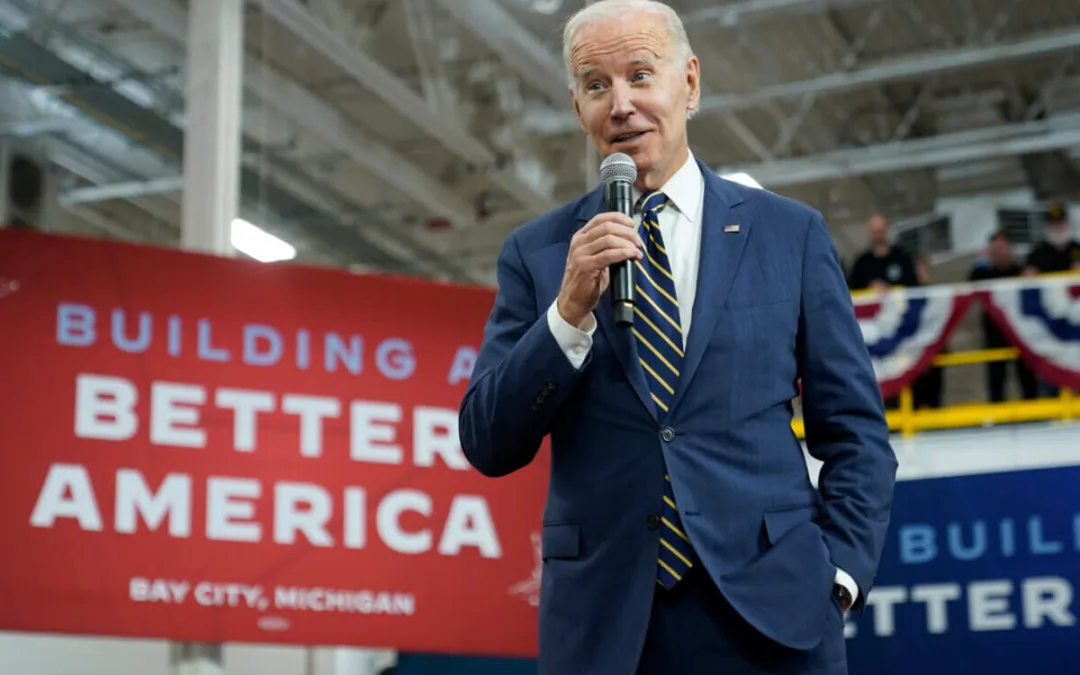
Image via AP Photo/Charlie Neibergall, FILE
Millions of new voters in 2020 may find a connection with this first-generation American, and first woman of color on a presidential ticket.
The appointment of California Sen. Kamala Harris as vice presidential candidate by Joe Biden was an emotion-charged historic moment for millions of people—especially women of color—but it wasn’t a total surprise.
Harris had been repeatedly touted as one of the candidates with the most chances of being picked by the presumptive Democratic nominee to be his ticket partner to the White House.
Why? Because Sen. Harris checked probably more boxes than any other woman on Biden’s shortlist: she had been vetted at the national level after being a presidential hopeful herself; she had won elections as district attorney of San Francisco, attorney general of California and senator of California, having experience in the executive and legislative branches; she is not only a woman of color, but the first Black and South Asian American woman to appear on a major party’s national ticket; and she had raised her profile—and voice for police reform— during the Black Lives Matter demonstrations following the killing of George Floyd, yet her past in law enforcement may appeal to swing voters.
RELATED: ‘Smart, Tough and Ready to Lead’: Joe Picks Kamala and Hollywood Explodes
As many have said, this decision wasn’t based on Harris being able to “deliver” her home state of California—an unquestionable blue state—like many other vice presidential hopefuls have attempted to do in the past with their own swing home states.
The question is: In what ways does she round out the Biden ticket when it comes to appealing to specific demographics, in particular the projected record 32 million eligible Latino voters?
Latinos are expected to be a significant portion of the electorate in a few swing states, including New Mexico (43% of the electorate), Arizona (24%), and Florida (20%). Will Sen. Harris help drive Latino voters to the polls in larger numbers than the roughly 12.65 million who voted in 2016, a 47.6% turnout according to the U.S. Census? Will she help the Democratic ticket more than the 66% of the Latino vote it got in 2016?
There are a number of factors in Harris’ personal life and credentials that give her a chance to connect more deeply with Latino voters than other vie presidential candidates in the past — arguably more than Hillary Clinton’s running mate Tim Kaine, who touted fluency in Spanish and 9 months in Honduras.
READ MORE: Here’s a Step-by-Step Guide on How to Register to Vote in Florida
The Immigrant Story: Kamala Harris was born in Oakland, California in 1964 to a Tamil Indian mother and a Jamaican father who had both emigrated to the U.S. to pursue graduate studies. As a conservative political correspondent acknowledged on Twitter: “[W]hatever else you think of Kamala Harris, it’s pretty amazing and awesome that immigrants can come to the U.S., meet, marry, have a child, and their daughter can grow up to be DA, state attorney general, U.S. Senator, and on a presidential ticket.”
Or as Washington Post reporter Madhulika Sikka put it, this photo of Harris’ parents “will touch the heart of millions of American immigrant families. A first gen American on the ticket is historic.”
Identity Beyond Categories: Kamala Harris has been defined by the media as the “first Black woman on a presidential ticket.” Still, based on her background and mixed ancestry—Jamaican, Indian—she has said she mostly identifies simply as “American,” a nod to the aspiration of belonging to American society at large, beyond ethnic categories that Latinos understand and can relate to.
Immigration Stance: As a senator, Harris supported a path to citizenship for undocumented immigrants and the DREAM Act, two promises that were part of her presidential platform.
Support of Farmworkers: In 2019, Harris reintroduced in the Senate the Fairness for Farm Workers Act (which is still in Congress), a bill that aims to grant overtime protections to farm workers who work more than 40 hours a week and ensure them minimum wage. Later that year, she received the endorsement of United Farm Workers, the union started by César Chávez and Dolores Huerta.
Hispanic Outreach: During stops in her presidential campaign, Harris made a point of inviting voters to ask questions in Spanish via real-time translation. A 2019 Univision poll showed Harris with the second most-favorable rating among registered Latino voters, only behind the only Latino presidential hopeful at the time, Joaquín Castro.
A History of Firsts: She is the first woman of color on a major party ticket, and the first person of Indian descent to be nominated for national office by a major party—all things Latinos and immigrants at large can identify with.
The Non-Ivy Leaguers: Harris has an impressive education, double-majoring in political science and economics, and getting a J.D. before starting her career in law—but with a twist: college was Howard University in D.C., a federally chartered historically black university, and her law degree is from University of California, Hastings College of the Law in San Francisco. It may be a detail, but the Biden-Harris team is the first Democratic ticket to not have an Ivy League grad for the first time since 1984, and as such, a little closer to the average man than usual party elites.
Politics

Teamsters and UPS Reach Tentative Deal to Avoid Strike, 340,000 Workers to Get Raises
The tentative deal represents a huge win for full- and part-time UPS Teamster workers, who would get significant pay raises and better working...

One Republican Senator Is Blocking 265 Military Promotions, Leaving the Marines Without a Confirmed Leader
Sen. Tommy Tuberville's decision means these military officers are not getting the pay raises they’re owed, cannot move their families to wherever...
Local News

Teamsters and UPS Reach Tentative Deal to Avoid Strike, 340,000 Workers to Get Raises
The tentative deal represents a huge win for full- and part-time UPS Teamster workers, who would get significant pay raises and better working...

One Republican Senator Is Blocking 265 Military Promotions, Leaving the Marines Without a Confirmed Leader
Sen. Tommy Tuberville's decision means these military officers are not getting the pay raises they’re owed, cannot move their families to wherever...




